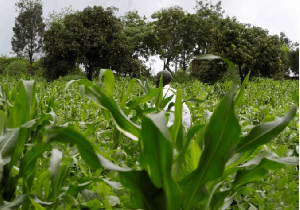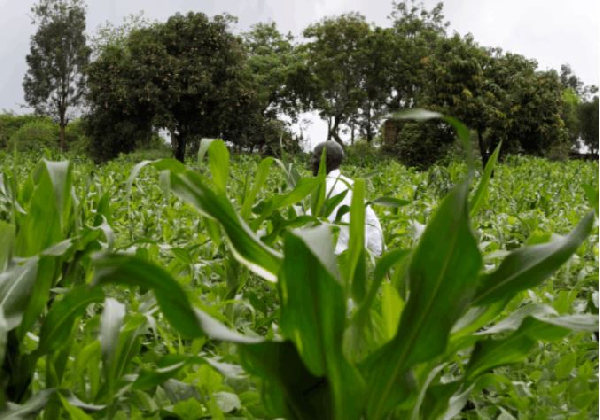 Small-scale farmers in Kenya celebrated after the court ruling
Small-scale farmers in Kenya celebrated after the court ruling
Small-scale farmers in Kenya sang and celebrated on Thursday after a court ruling secured their right to carry on the traditional practice of sharing local seeds.
Kenya’s High Court said that part of a law banning the practice was unconstitutional, a ruling that farmer Samuel Kioko called a “great victory”.
“It will be a relief for us farmers because we will be planting seeds that are familiar to us. We know where they come from, they are drought resistant, and they have been in our lineage all along for many years,” he said in Kenya’s capital Nairobi, after watching the court give the verdict online.
Under the 2012 “Seed and Plant Varieties Act”, anyone who saved uncertified seeds from their crops, then sold or shared them, could face fines or jail. The state-run Kenya Plant Health Inspectorate Service argues on its website that the legislation was meant to guarantee seed quality and maximise yields.
A group of smallholder farmers from across Kenya petitioned the High Court in 2022, asking it to declare that the parts of the law imposing those penalties were unconstitutional.
A lawyer representing the farmers said the court in Machakos town, about 60 km (40 miles) southeast of the capital, had ruled the law did not treat farmers and commercial seed producers equally.
Parts of the law “granted extensive proprietary rights to plant breeders and there was no corresponding right that was given to the farmers. So, it favoured big commercial and corporate interests over the rights of farmers,” Wambugu Wanjohi from the Law Society of Kenya said.
Campaign group Greenpeace called the ruling a victory for “food sovereignty”.
The verdict, it said, affirmed that “the ancient right of farmers to save and share seeds supersedes commercial interests, reshaping the legal balance of power between communities and agribusiness worldwide.”
